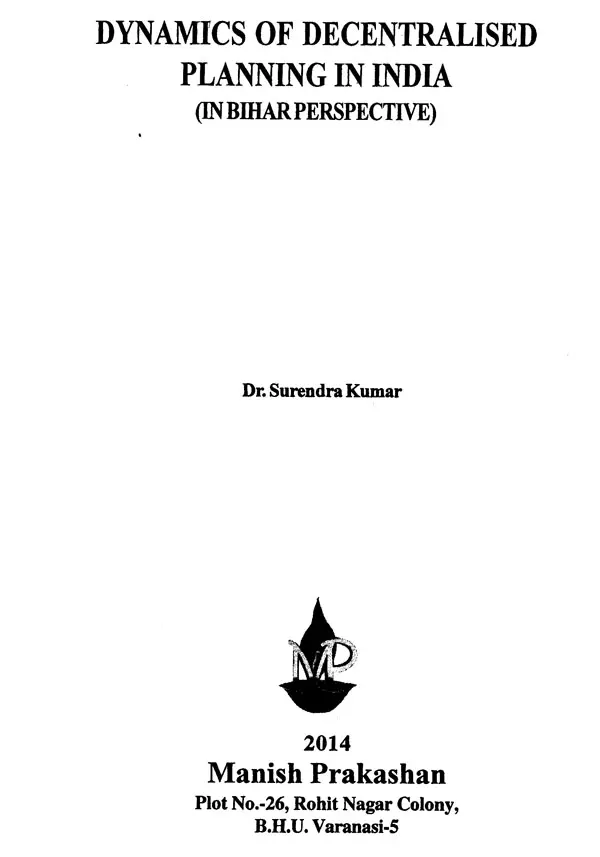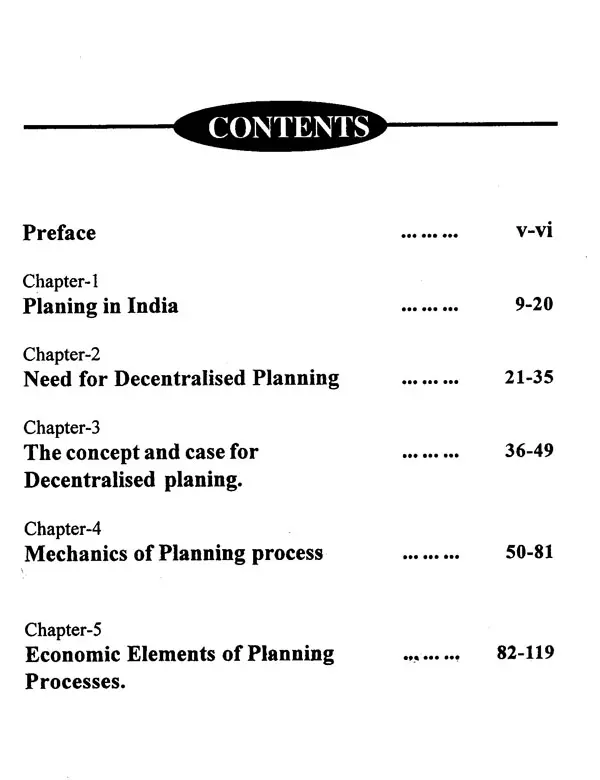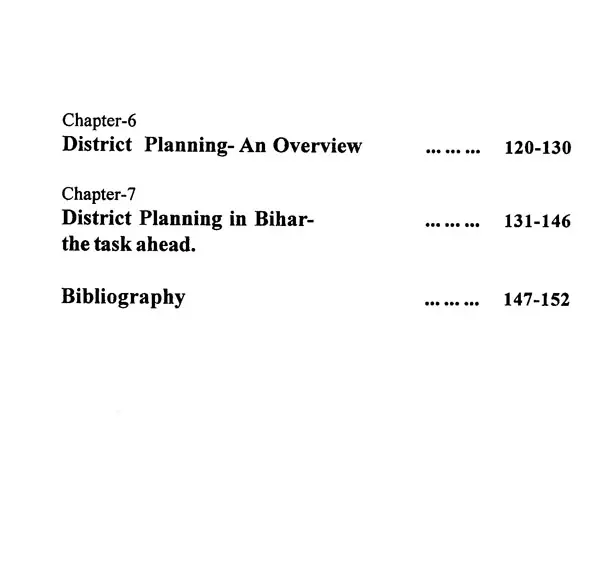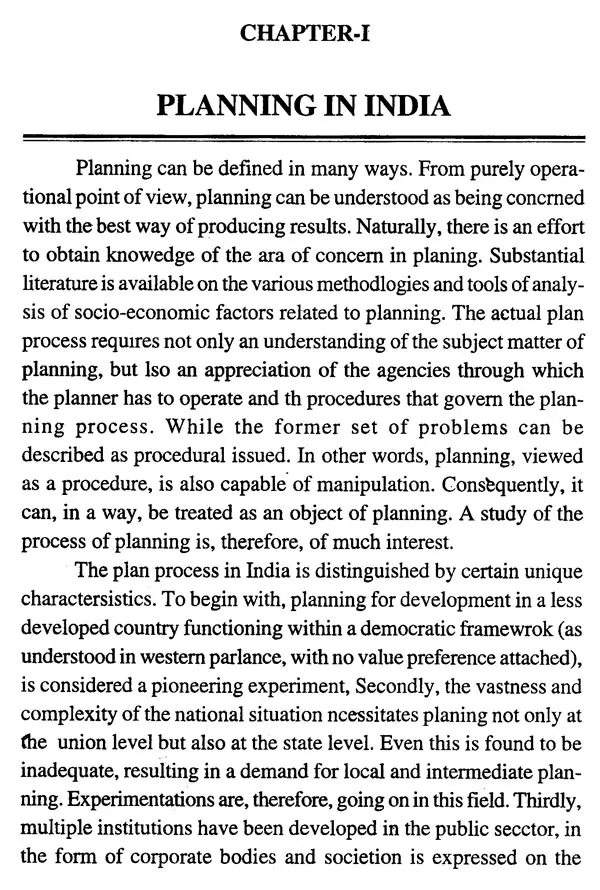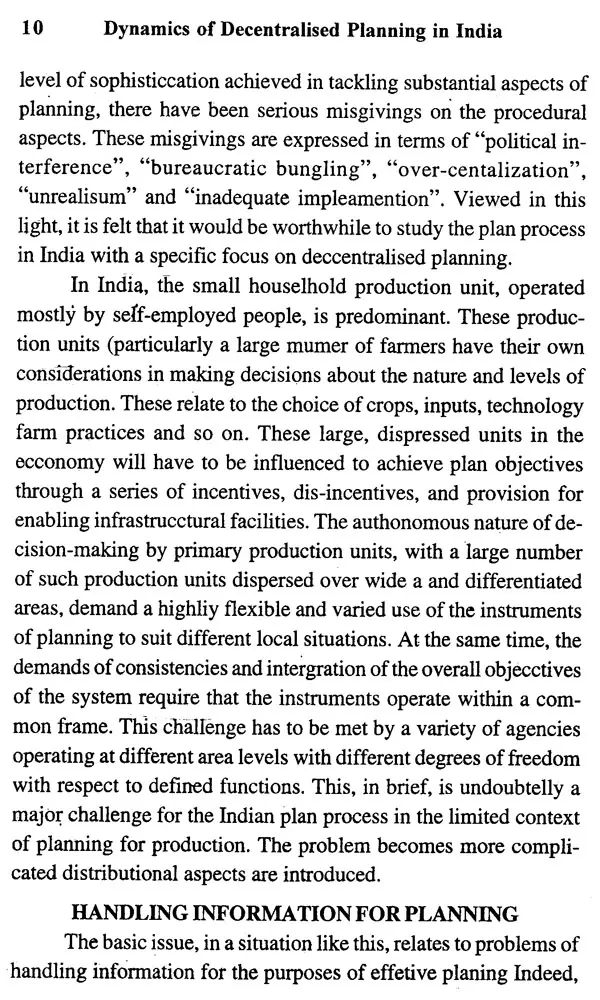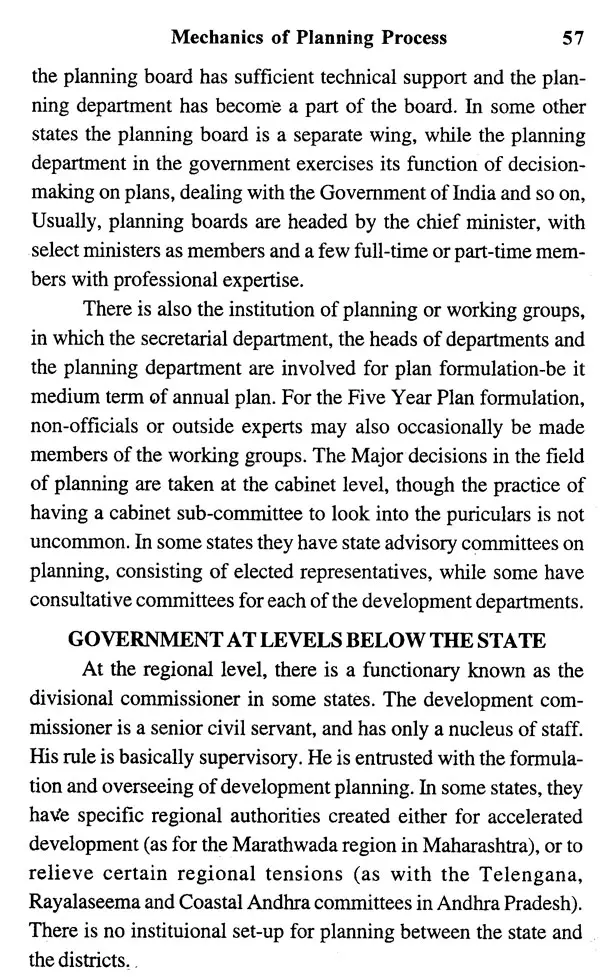
Dynamics of Decentralised Planning in India (In Bihar Perspective)
Book Specification
| Item Code: | UAK860 |
| Author: | Surendra Kumar |
| Publisher: | Manish Prakashan, Varanasi |
| Language: | English |
| Edition: | 2014 |
| ISBN: | 9789381539927 |
| Pages: | 152 |
| Cover: | HARDCOVER |
| Other Details | 8.50 X 6.00 inch |
| Weight | 300 gm |
Book Description
Experiments in decentralised Planning are neither never of few. Infact along with introduction of Five Year Plans attempts were made to democratise the Planning Process in India. Balwant Mehta Committee (1958) was a serious attempt in this direction of late. The List was enlarged by the Reports of the Ashok Mehta Committee in (1977) and V.K.R.V Rao Committee (1985), but still the problem is persisting.
Literature of decentralished Planning under different intities such as local level Planning, district Planning, Block level Planning etc. is voluminous but in this book the author has highlighated on the concept, mechanism and need for decentralised Planning. The special feature of the book is to focus upon District Planning in Bihar State and as such it fills-up a gap in the existing literature.
Dr. Surendra Kumar, M.A. (Economics), Ph.D. Primirily Joind as a teacher in S.B.A.N. College, Darheta Lari and now he is a faculty Member of S.S. College, Jehanabad, Magadh University, Bodh-Gaya (Bihar). He has been redering his services as a teacher since 1986 in: different capacity like Bursar & Coordinator of prefessional studies. He is the general secretary of Economic Association of Bihar.
He has also contributed a number of articles/research papers in different books and journals. Besides he has edited various books to this creadit. He has participated and presented papers in National and International Seminars, Conferences. He is a recognised research guide for Ph.D. degree in Economics, L.S.W. and M.B.A. of Magadh University, Bodh-Gaya. He is an active and life member of Prestigious Indian Economic Association.
Since Independence, Planning has been considered to be the best way of economic development of India with a view to socio-economic change. The idea of mixed economy was envisaged to obtain the benefits of private initiatives under the leadership of the Central government. "The Commanding heights" of the economy in the strategics sectors like defence, heavy industries social over heads capital like transport, comminicatoin are monitored through the public sector, while agriculture and consumer goods production have been left to the private sector. The target rate of growth, and the corresponding saving investment requirements are estinmated by the planning commission for resources continues for the country as a whole, while the ownership of major resources continues to lie in the private hands. As a result, there has been serious conflicts between those of the private capitalists and these conflicts stood in many ways in achieving out plan targets. Since, markets were not dispensed with there has been no gurantee that allocation of resources as per market signals will correspond to the sectoral and temporal allocation sought to be achieved by the planners and as a result we have been proliferation of controls and regulation introduced by the government from time to time to correct the discripancies and distortions. The entire debate between centralised Vs decentralised planning in India should therefore, be viewed in the context of our mixed economy experiment.
Keeping in view of the decentralised allocation of resources, a significant deviationswere witnessed during the Fourth Plan in Planning process with the shift of emphasis to the district and local planning. In pursuance to this approach an attempt was made during the Fifth Plan to evolve national policies and objectives and subsquently to decompose these into state, regional and district plans through a two way process of consulation between various level at different stages of plan formulation.
The Sixth Plan envisaged creation of planning machinery at the block and district and the process of people's participation institutionalised in the panchayat Raj System. This was as a process of democratic decentralisation of planning process. Many states including Bihar district level planning process through Zila Parishad were experimented. The issue of decentralised planning was extended in Seventh Plan also. The subsequent Plans followed the decentralised planning process through Panchayats on micro level under macro framework of rural and backward areas development.
In this context, the author has tried his best to explain and examine the dynamics of descntralised planning in India and Bihar under various chapters and has unfolded the efficacy of decentralisation in planning process. In the preparation of this book, I recieved cooperation from different conrners. Dr. R.K. Sinha professor and head department of economics of Ruhel Khand university has intuited me to write the book on the-issue of decentralised planning. I am highly obliged to him. I am indebted to Dr. R.B. Singh, Director, Planning Board Bihar for his constructive suggestions. I obtained unethomable grace of my father and mother, who always inspired me to write a book. The present book on decentralised planning, however, is my own imanicipation and endeavour which will be useful for research scholars and students both in the present scenario of inclusive growth schematism.
**Contents and Sample Pages**
